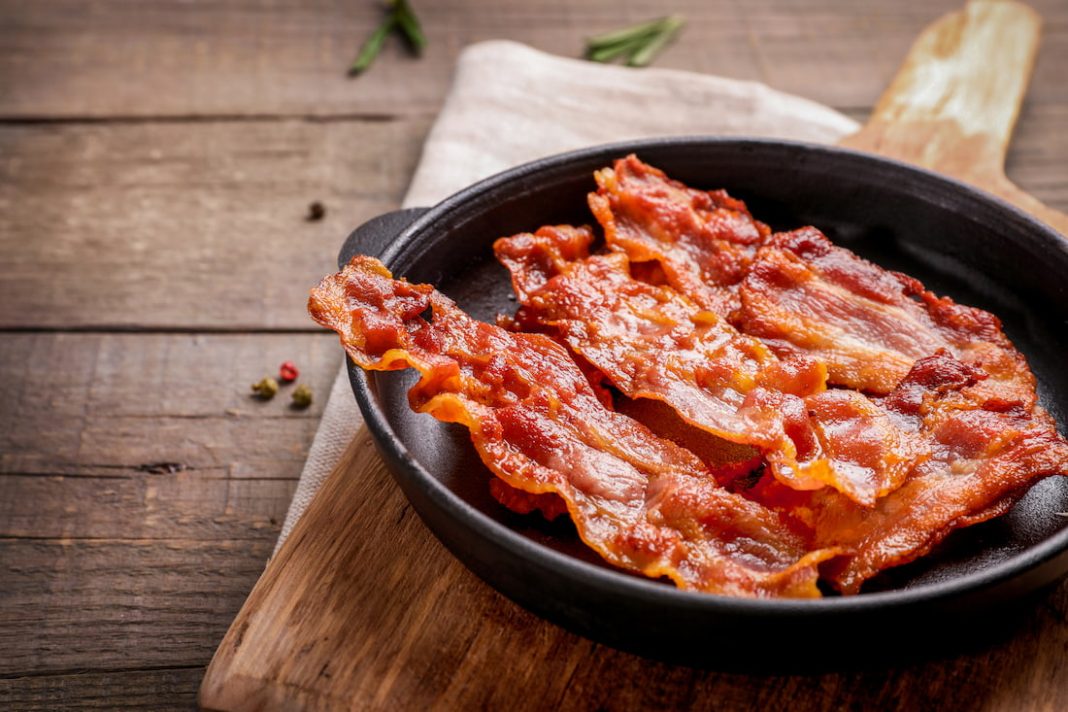What do bacon, asbestos and cigarettes have in common? They are all Group 1 carcinogens listed by the World Health Organization’s International Agency for Research on Cancer (IARC).
To make it onto the Group 1 list, there must be very strong evidence linking a substance to cancer, which in the case of bacon causing colorectal cancer, there is. Colorectal cancer is the fourth most prevalent cancer in Australia with over 15,000 new cases every year.
If the knowledge that bacon causes colorectal cancer has already ruined your day, then I apologise as the news is about to get worse. All processed meats are in the same Group 1 category, which according to the IARC, includes hot dogs, ham, sausages, salami, corned beef, biltong, beef jerky, pancetta, and chorizo. Hold the charcuterie board!
Beware the nitrates
One common factor with processed meats is the presence of additives in the form of potassium nitrite 249, sodium nitrite 250, sodium nitrate 251 or potassium nitrate 252 that are used to preserve the meat and prevent discolouration and harmful bacteria forming. When meat with these additives is cooked and eaten, carcinogenic (cancer-causing agents) N-nitroso compounds (NOCs) such as nitrosamine are formed and that’s what’s led to them landing on the IARC Group 1 list.
What about nitrate-free products?
Before bacon was made industrially, instead of synthetic nitrates, meat was cured more simply, with salt and drying. Nitrates have been introduced over time to help speed up the process and create a product that looks pink and fresh.
Nitrate-free products are increasingly available at some speciality shops like organic butchers and gourmet suppliers. Nitrates don’t enhance the flavour, so nitrate-free tastes just as good.
So…can I eat bacon?
The IARC stresses that all group one carcinogens are not equally dangerous, which makes sense. Eating bacon is not as dangerous to health as exposure to asbestos.
According to the IARC, the more processed meat you eat, the higher the risk, it found that every 50g portion of processed meat eaten daily increases the risk of colorectal cancer by 18 per cent over the course of a lifetime. This is over and above the baseline average 8.2 per cent risk of developing bowel cancer by the age of 85.
If you eat processed meats regularly, you’d be well advised to reduce your consumption. Where possible choose nitrate-free options. Finally, think of processed meats as an occasional treat rather than a regular part of your diet and you’re likely to minimise any adverse effects.
Editor’s note: This wellbeing column provides information that is general in nature. Please always refer to your preferred health professional for advice suited to your personal healthcare requirements.



